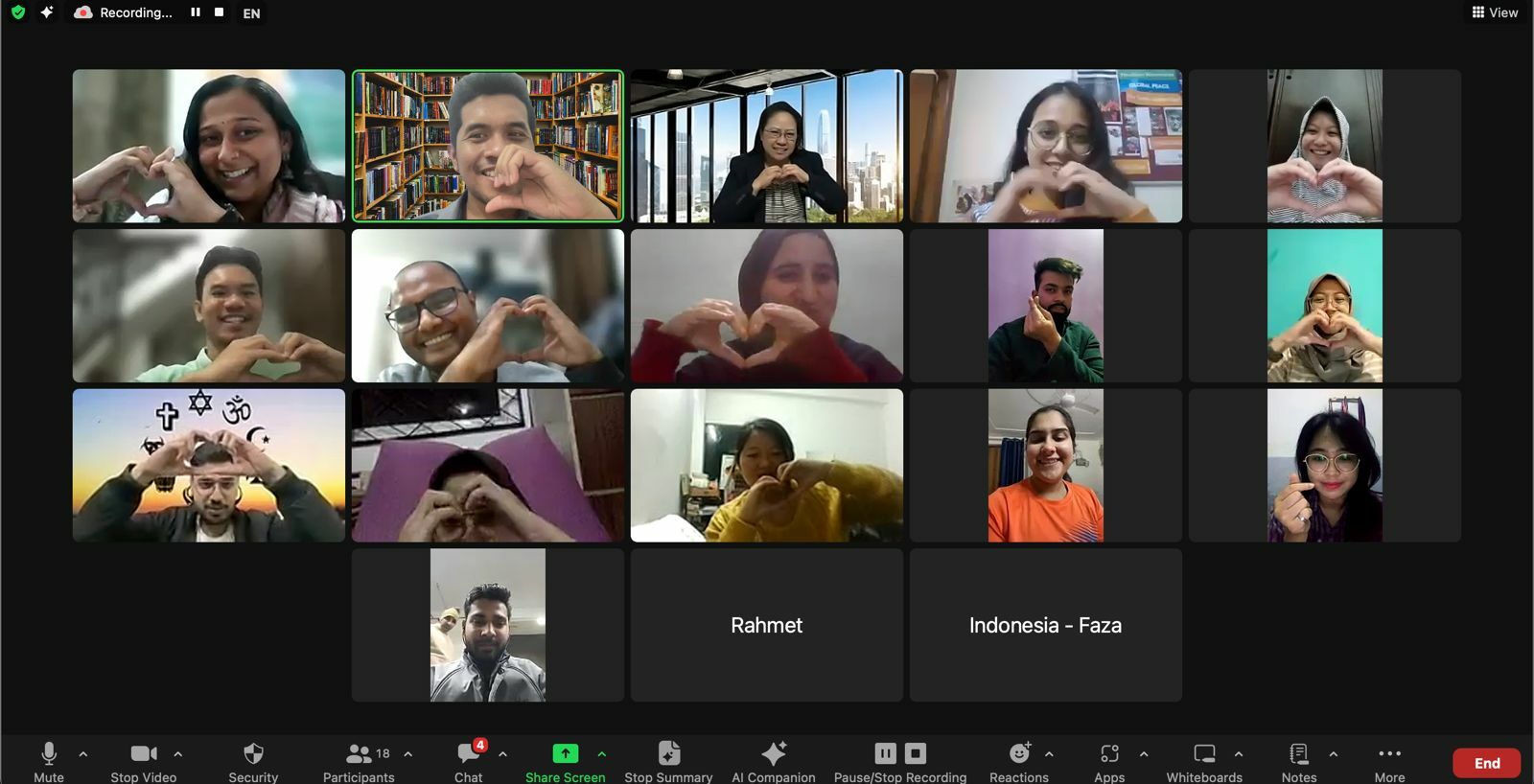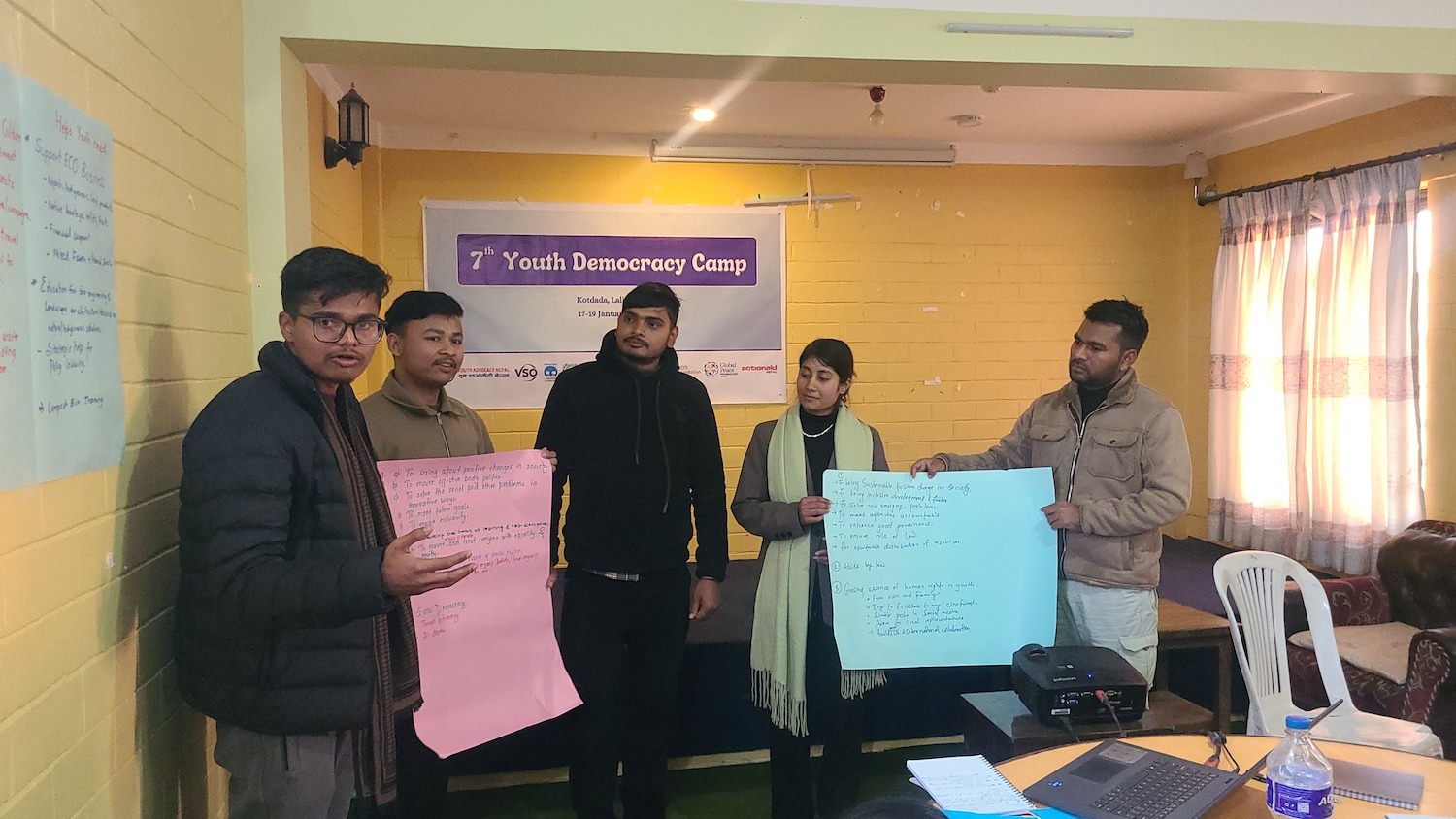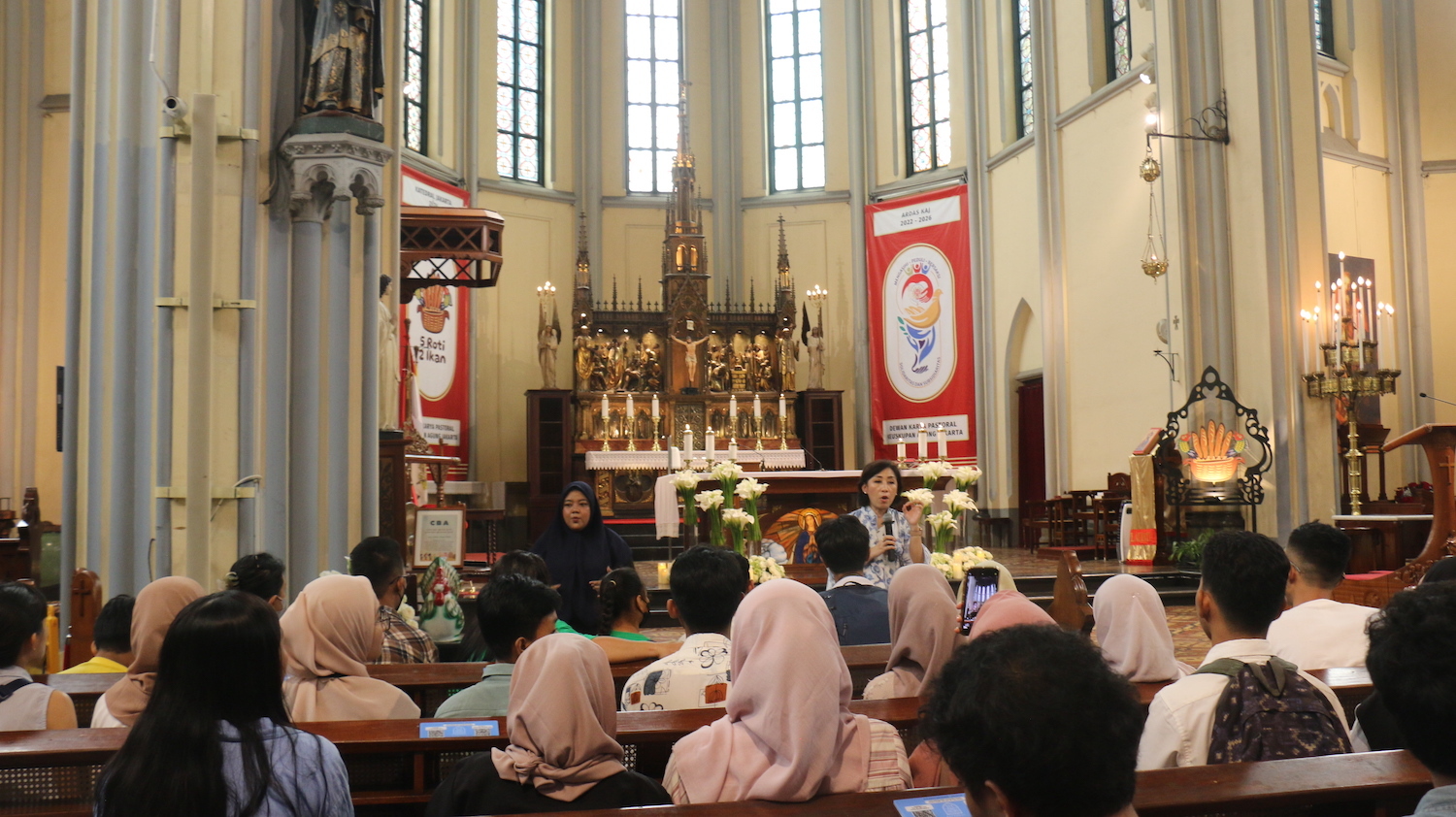In June, the Global Peace Foundation conducted two interfaith programs focused on the youth in two very different regions of the world: Southern Kaduna State in Nigeria and Jakarta, Indonesia.
Despite the geographic and cultural differences, challenges in both regions highlight the way in which identity-based conflicts disrupt peace and hamper development. The abduction of nearly 300 girls from Chibok and the #bringbackourgirls social media campaign has garnered international attention to what is really a wider Nigerian inter-tribal, intra-religious and inter-religious conflict. While in South Asia, national, sub-national, tribal, racial and religious conflicts present daunting obstacles for greater economic and regional integration of the ASEAN subcontinent set for 2015.
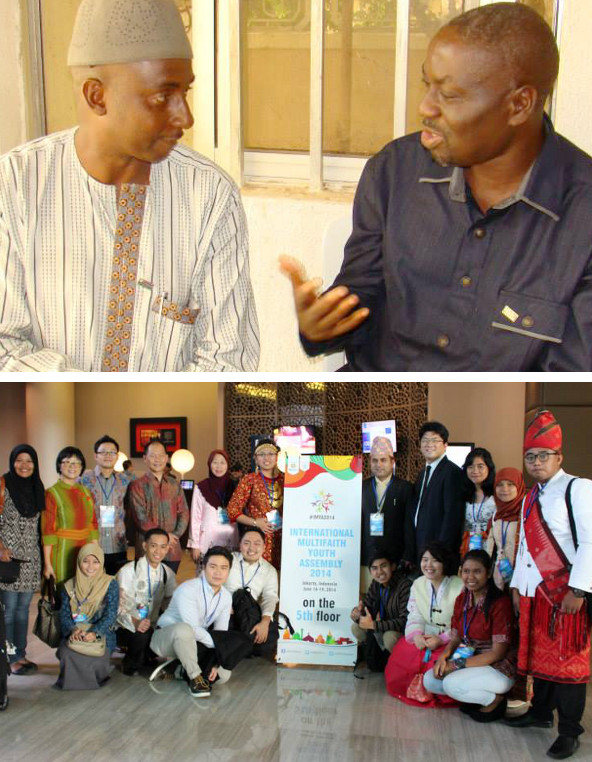
Interfaith Young Leaders Retreat in Nigeria (top) and the International Multifaith Youth Assembly in Indonesia (bottom)
In response to these and many other similar conflicts brewing in the different regions throughout the world, the Global Peace Foundation initiated the Interfaith Young Leaders Retreat in Nigeria and theInternational Multifaith Youth Assembly (IMYA) in Indonesia.
Both programs address different contexts, audiences and challenges but essentially point to the moral authority of spiritual and religious leaders to resolve these seemingly intractable identity-based conflicts.
Among our partners working for peace, the International Center for Religion and Diplomacy(ICRD), has similarly worked to tap the moral authority of religious and spiritual leaders and institutions to mitigate extremism and religious conflict. ICRD is a Washington D.C. based non-profit organization founded by Dr. Douglas Johnston, who is also on GPF’s global leadership council. They use what is referred to as “Track Two diplomacy” to engage religion as a solution, rather than dismissing it as the cause to religious conflict.
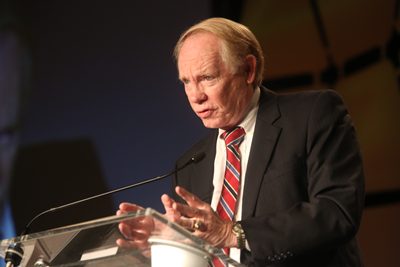
Dr. Douglas Johnston, President of the International Center for Religion and Diplomacy
In 2007, Douglas Johnston conducted a round table with several Taliban commanders in the mountains of Pakistan. At the Euphrates Summit in 2011, he recounts that his objective at the time was “to see if we can build on religious values that we have in common to build a confidence-building measure that can point to peace.”
Significantly, Dr. Johnston does not shy away from his own Christian convictions, and he is not afraid to draw connections with Islam. At one point in the discussions, a participant stood up and confronted Dr. Johnston, “I cannot talk to you unless you are a Muslim.” To which Dr. Johnston responded, “I don’t see a problem with that. Muslim means submission to God, we all submit to God, and thus we are all Muslim.” Later that year, that same group of religious and tribal leaders became instrumental in the release of 18 Korean missionaries kidnapped by the Taliban.
This exchange illustrates what Professor Diana Eck of the Pluralism Project at Harvard University encourages as an “encounter of commitments” that becomes the basis for an “active seeking of understanding across lines of difference.” Rather than stripping away religious convictions, it is a quest to draw out the universal principles and shared values that can become the basis for cohesive, ethical societies amid diversity.
Yet, it takes a leap of faith to tread on “enemy” territory to discover common ground. It also takes clarity of understanding, as well as the courage to seek out connections that can cultivate respect and eventually, cooperation.
Retreats and assemblies such as the Interfaith Young Leaders Retreat in Nigeria and the International Multifaith Youth Assembly facilitate this process by providing a safe space to explore common ground and commitments in places fraught with tension and conflict. It is in these safe spaces among those who are poised to shape the future as the parents, teachers and leaders of tomorrow, we might imagine peace, understanding, and with it, cooperation and prosperity.

